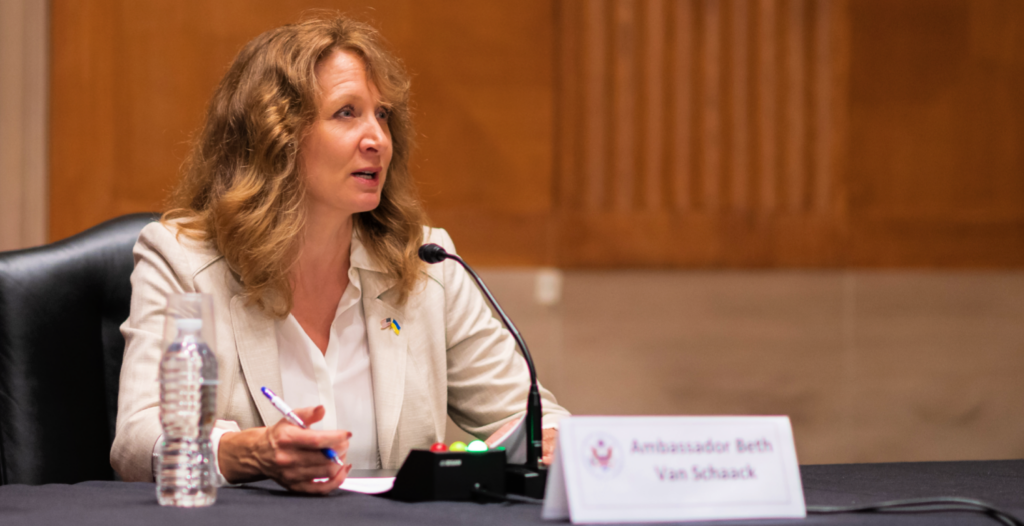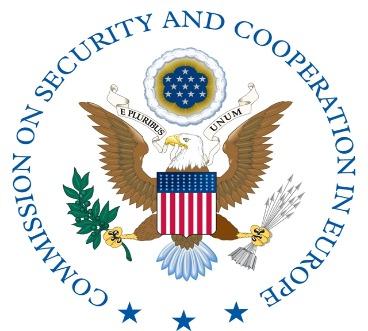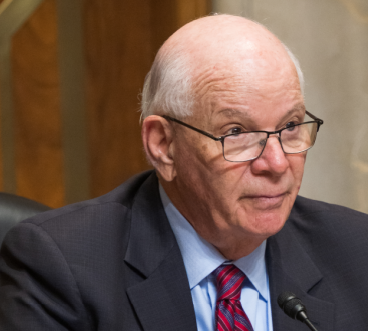WASHINGTON – Torture, including sawing off teeth, remains a widespread abuse in some countries according to panelists at a briefing today of the Commission on Security and Cooperation in Europe (the Helsinki Commission). In advance of the U.N. International Day in Support of the Victims of Torture (June 26), the Helsinki Commission heard reports on the use of torture in Turkey and Chechnya. At an OSCE Summit of Heads of State and Government held last November in Istanbul, Turkey and Russia and the other OSCE Participating States committed themselves to “eradicating torture and cruel, inhumane or degrading treatment or punishment.” Despite the countries’ commitments, however, panelists said torture remains a widespread human rights problem.
Helsinki Commission Chairman Rep. Christopher H. Smith (R-NJ) said the issue of torture is one of long-standing concern to the Commission. “We have addressed it at numerous Commission hearings and briefings. We have raised it at OSCE implementation meetings. We urged inclusion of language on torture adopted by the OSCE Summit of Heads of State and Government, held in Istanbul last November,” Smith said. “Unfortunately, in spite of these efforts, torture continues to be a persistent problem in every single OSCE country, including the United States,” Smith added. “There is no OSCE country that does not have some instances of torture or cruel, inhuman and degrading treatment.” Chairman Smith was the principal sponsor of the Torture Victims Relief Act and subsequent re-authorization bills authorizing $106 million over 5 years and signed into law by President Clinton.
Helsinki Commission member Rep. Joseph R. Pitts (R-PA) said, “It is vital that we as a nation, as a government, and as Members of the Commission on Security and Cooperation in Europe do all we can to stop torture throughout the world. I give my pledge to help end these human rights violations as soon as possible.”
According to the Denmark-based International Rehabilitation Council for Torture Victims’ Dr. Inge Genefke, the Turkish Government has ignored many complaints by torture victims. Genefke cited a report by the Turkish Parliament’s human rights commission which documented widespread use of torture. “The victims stated they did not complain to the government or to the courts since very few complaints are acted upon,” Genefke said, adding that “this is the first time an official [Turkish] government body has admitted to the widespread practice of torture.”
“When a party is out of power, it opposes the use of torture. But when it is in power it tends to deny or condone the practice,” Genefke said. Amnesty International’s Maureen Greenwood noted that there is a problem with torture and ill-treatment in Russia in general, but described the situation in Chechnya as “out of control” and “indicates a new level of the problem of torture in Russia, including new types of torture that Amnesty has not previously recorded such as the filing of teeth with a metal saw.”
“Despite recent Russian Government assurances that all crimes against civilians will be investigated, the perpetrators remain unpunished,” Greenwood said. “Responding to the current level of torture and ill-treatment is a test of the professionalism and the military competence of the Russian armed forces and security forces. They are failing miserably,” she concluded.
Douglas A. Johnson, Executive Director of the Center for Victims of Torture, said the remedy to government sanctioned torture lies in the willingness of leaders world-wide to combat the issue up-front. “Torture exists in highly complex systems, and is reinforced by police training and impunity, prosecutorial zeal, political revenge and fears, corrupt or inefficient judiciaries, public attitudes and apathy, even apathy caused by fear,” Johnson said. “The use of torture will not yield to individual tactics, no matter how well conceived or pushed by governments, by non-government organizations, or by international agencies.” Johnson also underscored the role of treatment centers for torture survivors as tools to help “restore the dignity of the human spirit.”
Although OSCE countries committed, in the November 1999 summit agreement, to assist torture victims, Johnson noted that there are no rehabilitation centers in Central Asia or the Caucusas. Moreover, he said that some existing centers may be in danger of losing their funding, such as the center in Romania. “Thus, the need is more urgent to find a resource for financial and political support from the West to develop and sustain new treatment centers if we are to meet the recommendations of numerous OSCE meetings on the subject.”









